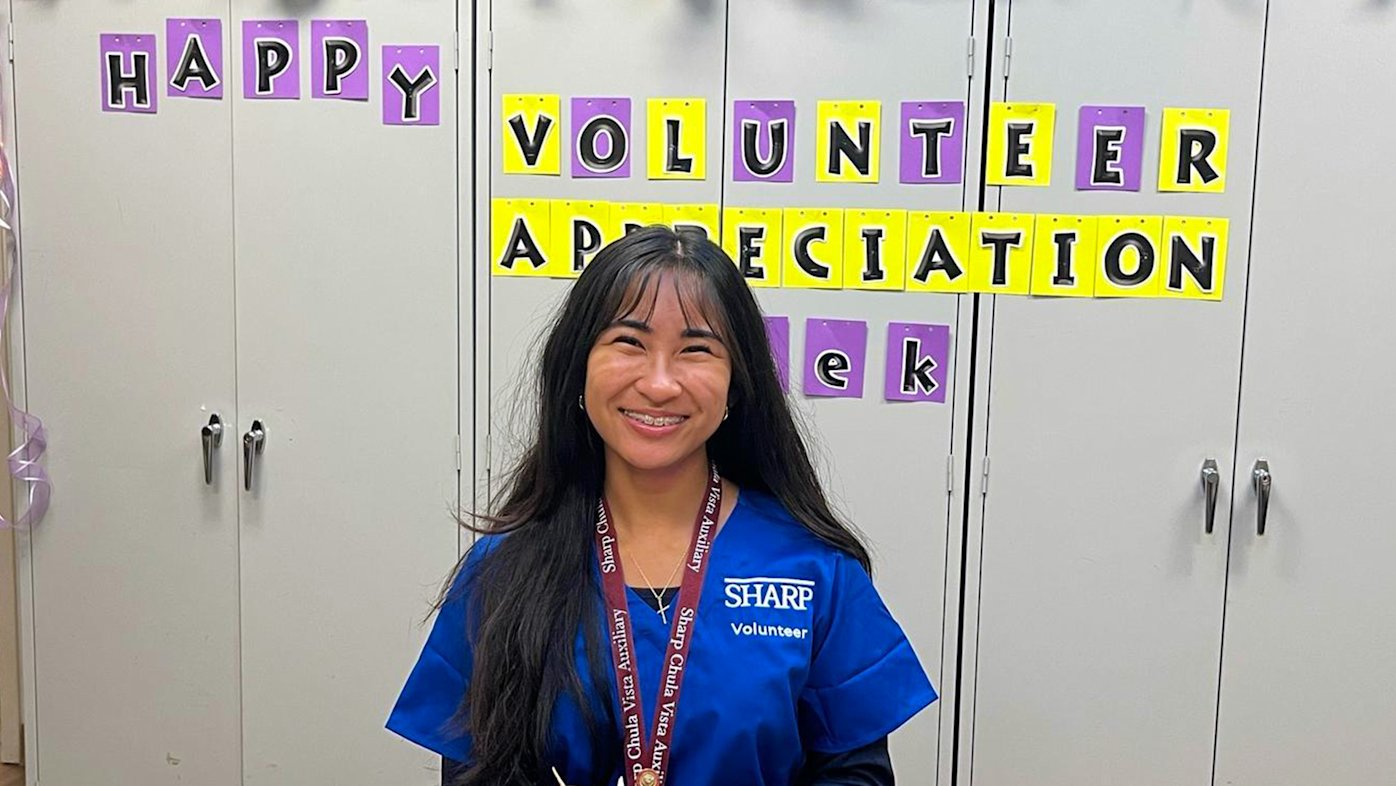
Student volunteer brings joy with wishing cranes
Carefully folded origami cranes carry messages of hope and healing, as one teen volunteer helps brighten patients’ days at Sharp Chula Vista Medical Center.
Sarah has dealt with dense breasts for much of her adult life. With a family history of breast cancer, she receives a mammogram or MRI every six months as part of her genetic counseling plan from Sharp HealthCare.
“Everything in terms of my breast health is more challenging because of their density,” says Sarah. “Any exams I need are always more complicated. The doctors and technologists do their best, but it’s hard for them to see clearly.”
Sarah, 44, has received mammograms since she was 35. The older she got, the more seriously she took their importance. In 2018, she met with oncology genetic counselors at Sharp, who took a detailed medical history and ordered a robust panel of lab tests to get a full picture of Sarah’s current and future predicted cancer risk. As a result, a personalized screening regimen was recommended.
In 2021, Sarah went for a mammogram as she had done countless times before, but this time, the radiologist encouraged her to try 3D mammography.
“I had never heard of a 3D mammogram, but it was an amazing experience,” says Sarah. “It was comfortable, and the radiologist said it was so easy to see my breast tissue in detail. Often, when I have a mammogram, I have to come back for another exam to clarify something that was seen. This can create a lot of anxiety, but I didn’t feel nearly as anxious this time.”
Different from a standard mammogram, which takes two images of each breast for a total of four images, breast tomosynthesis, also known as 3D mammography, takes hundreds of images to create a three-dimensional picture of the breast and look for abnormalities that may be otherwise hard to see.
“As a new technology, breast tomosynthesis has been shown to have a higher cancer detection rate and fewer patient recalls for additional testing than standard digital mammography,” says Dr. Howard Schiffman, medical director of San Diego Imaging – Chula Vista, which provides outpatient imaging services for Sharp Chula Vista Medical Center. “As physicians and medical experts, we have long sought ways to improve breast cancer screening accuracy. These advantages will have a positive impact on patient care.”
“We offer 3D mammography to any patient who wants it,” adds Larry Rosberg, executive director of San Diego Imaging – Chula Vista. “It’s the right thing to do — if we can detect breast cancer earlier in patients because we can see more clearly, that’s a great thing.”
A 3D mammogram releases the same amount of radiation as a traditional mammogram, so there is no increased risk to patients, and the experience is nearly the same otherwise. Because 3D mammography produces more images, the procedure typically lasts a little longer. Also, radiologists need a little more time to read the results as they carefully review all images.
3D mammography is offered at Sharp Chula Vista Medical Center, Sharp Coronado Hospital, Sharp Grossmont Hospital, Sharp Memorial Hospital and Sharp Rees-Stealy Medical Centers. Learn more about breast cancer screening and treatment at Sharp.
For the news media: To speak with Dr. Howard Schiffman for an upcoming story, please contact Erica Carlson, senior public relations specialist, at erica.carlson@sharp.com.
Our weekly email brings you the latest health tips, recipes and stories.